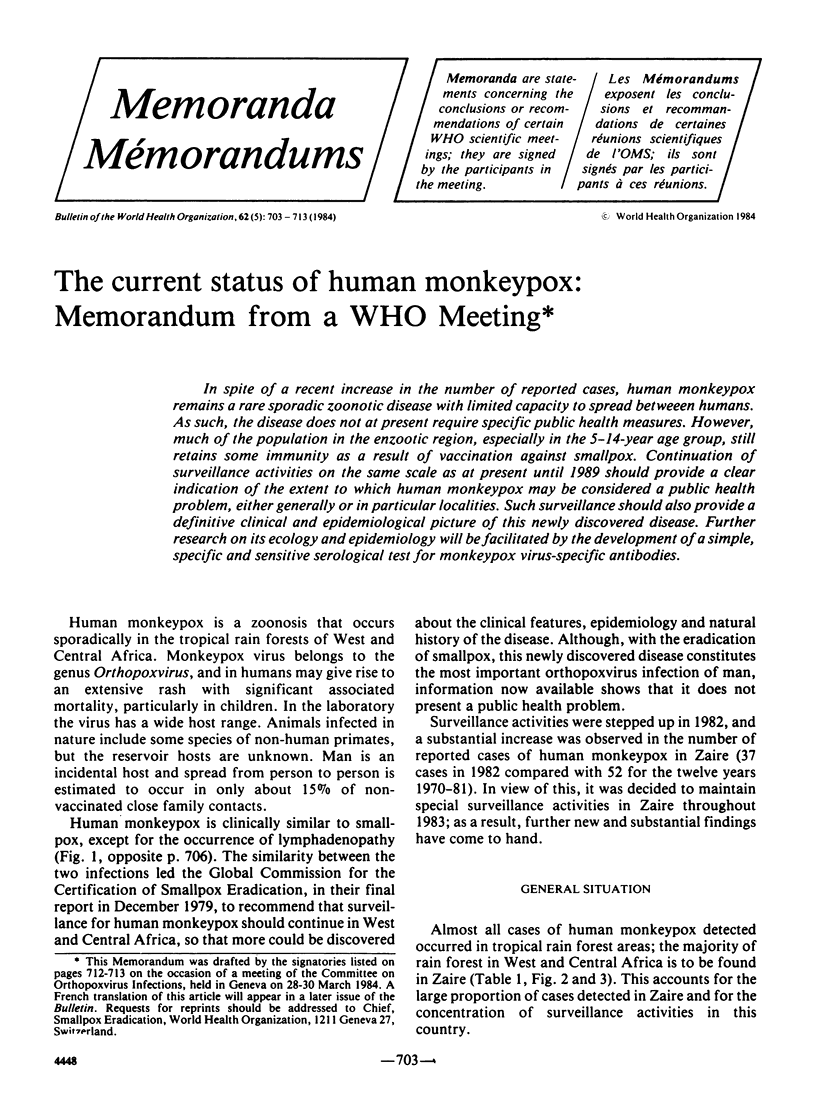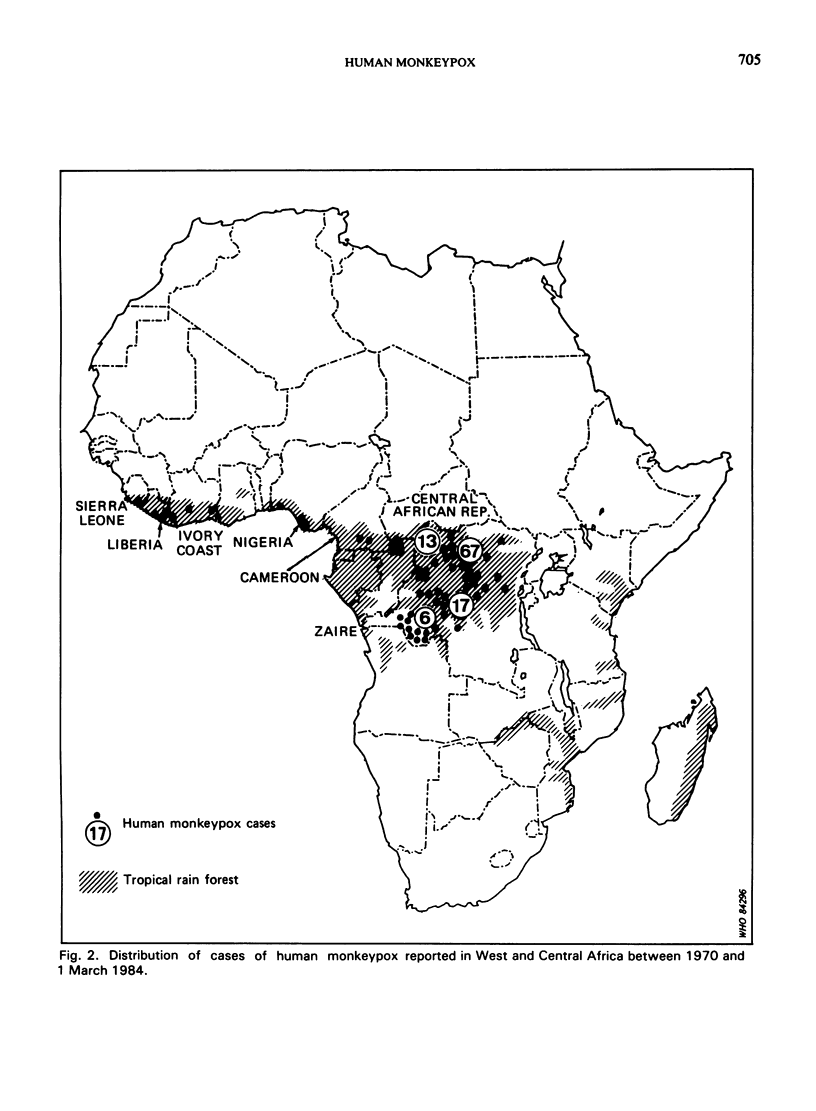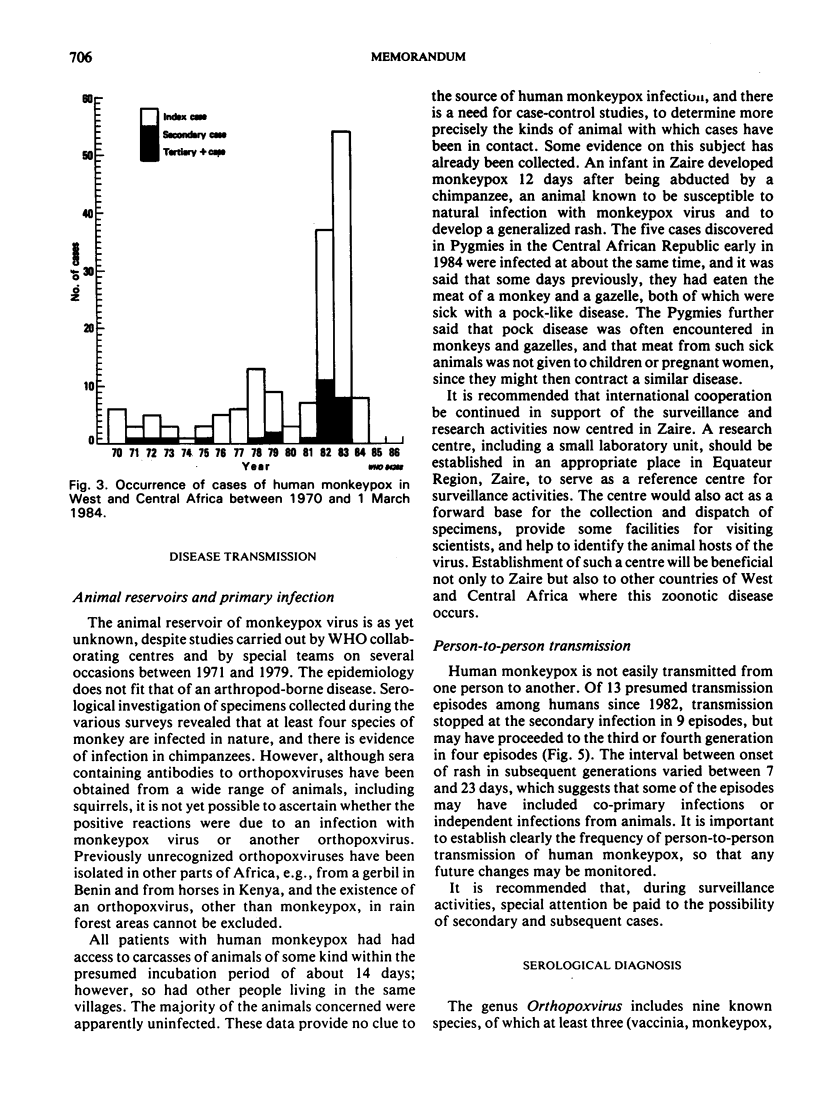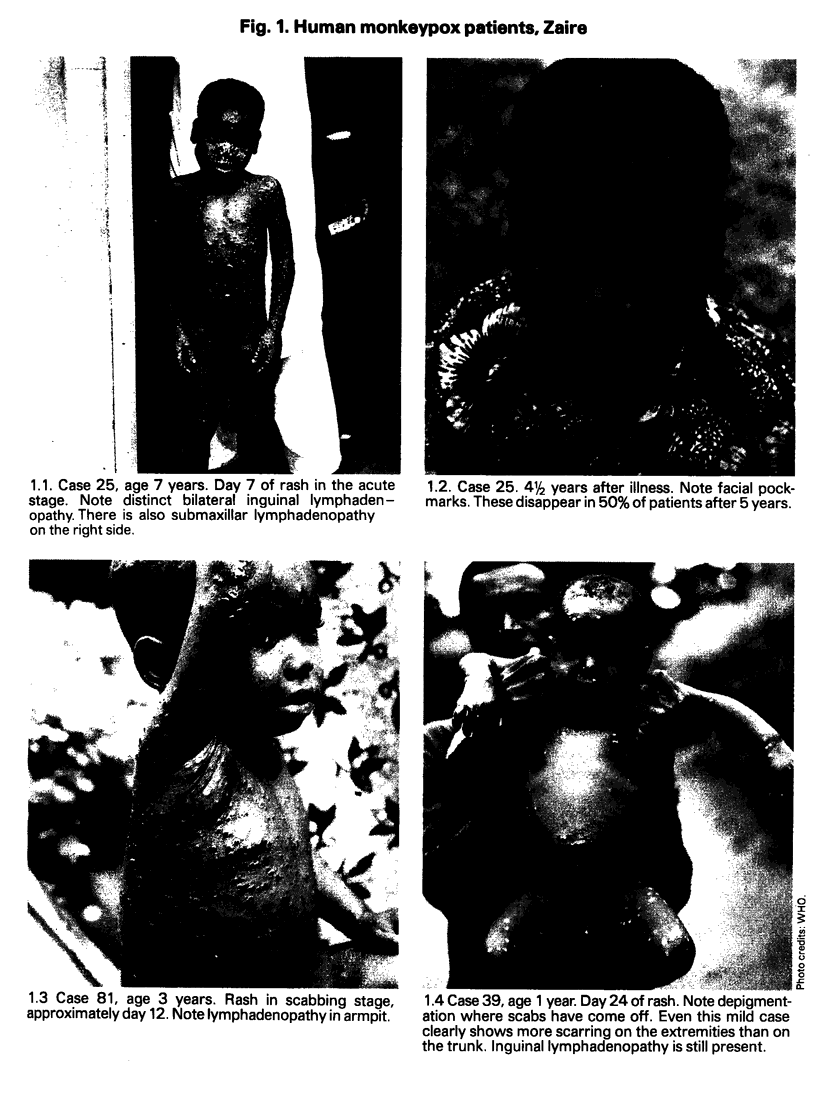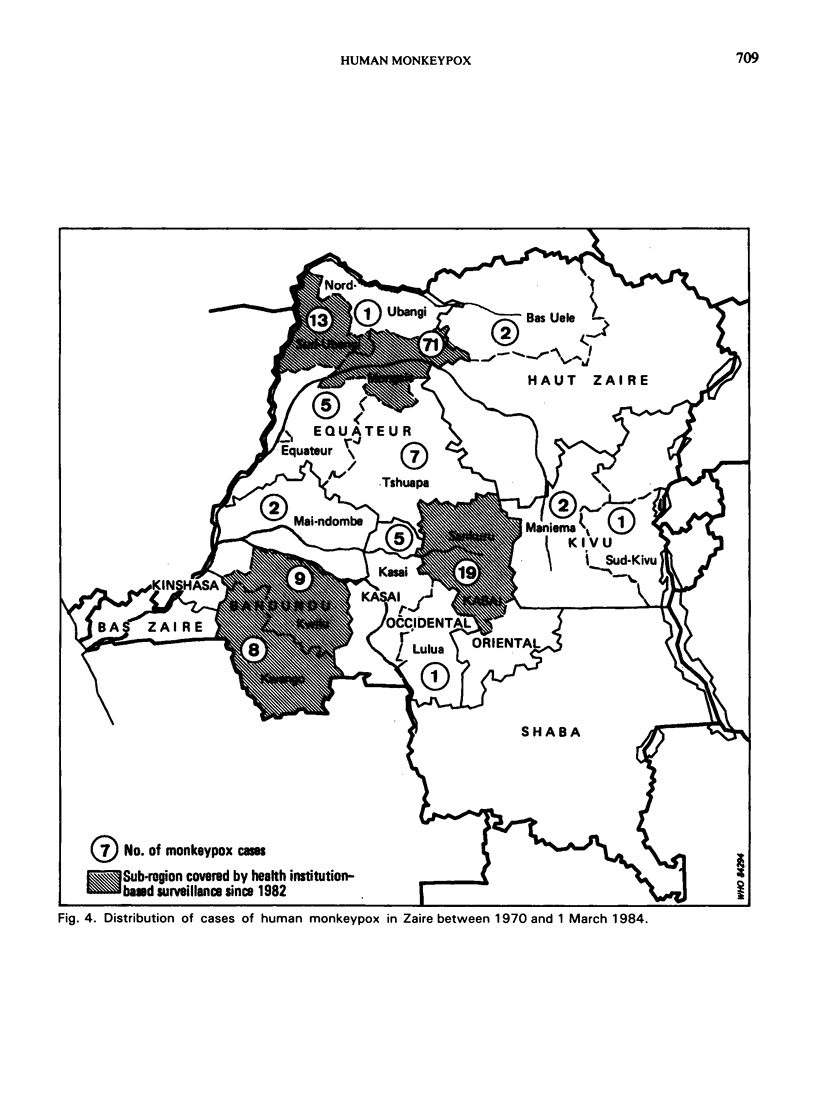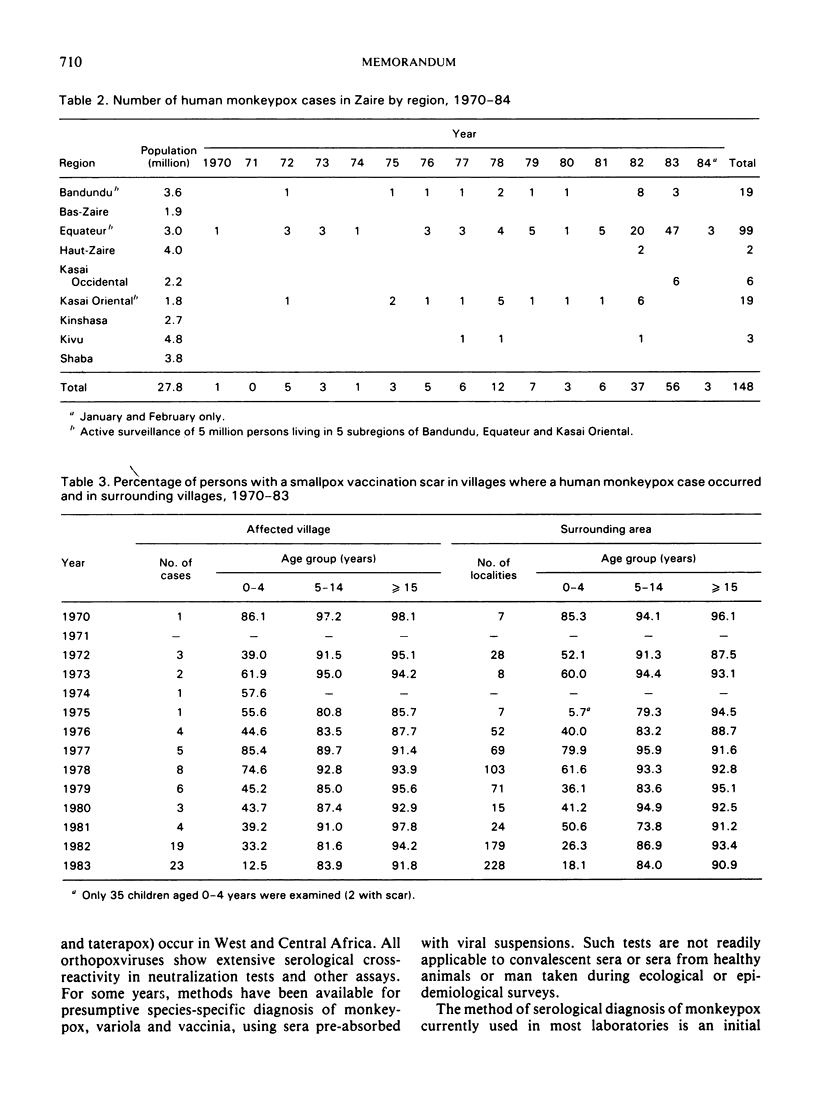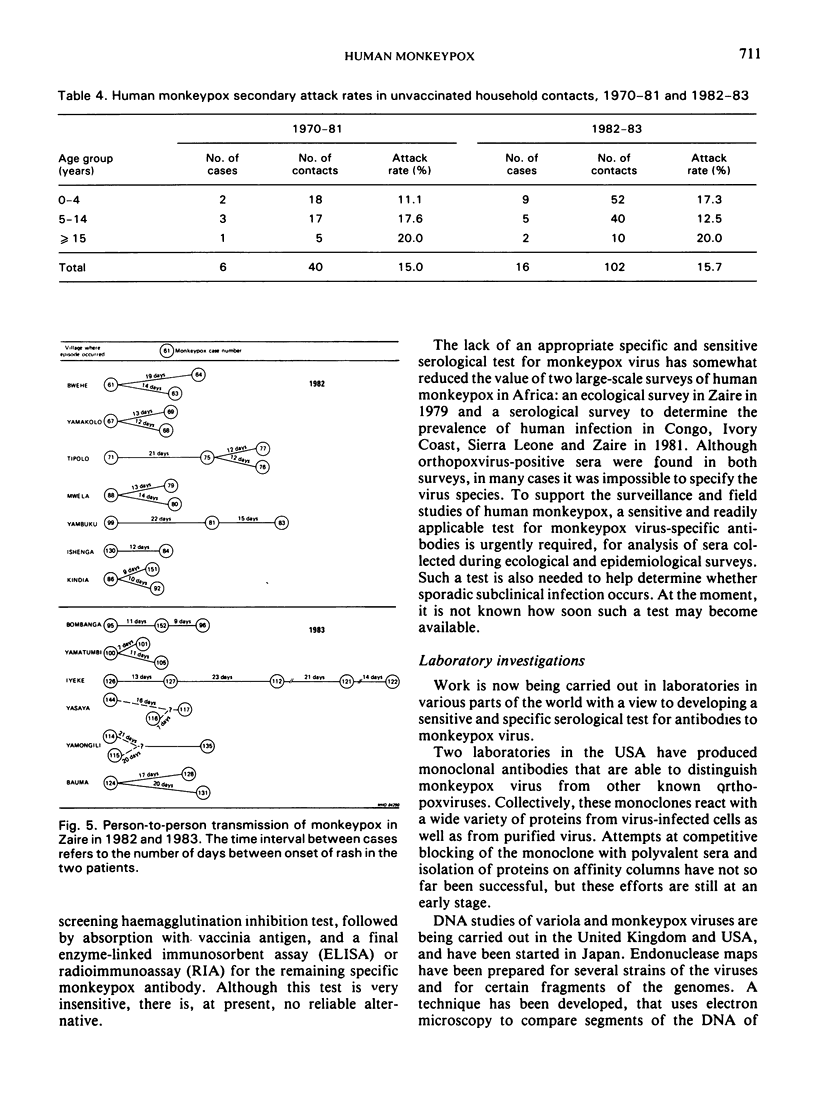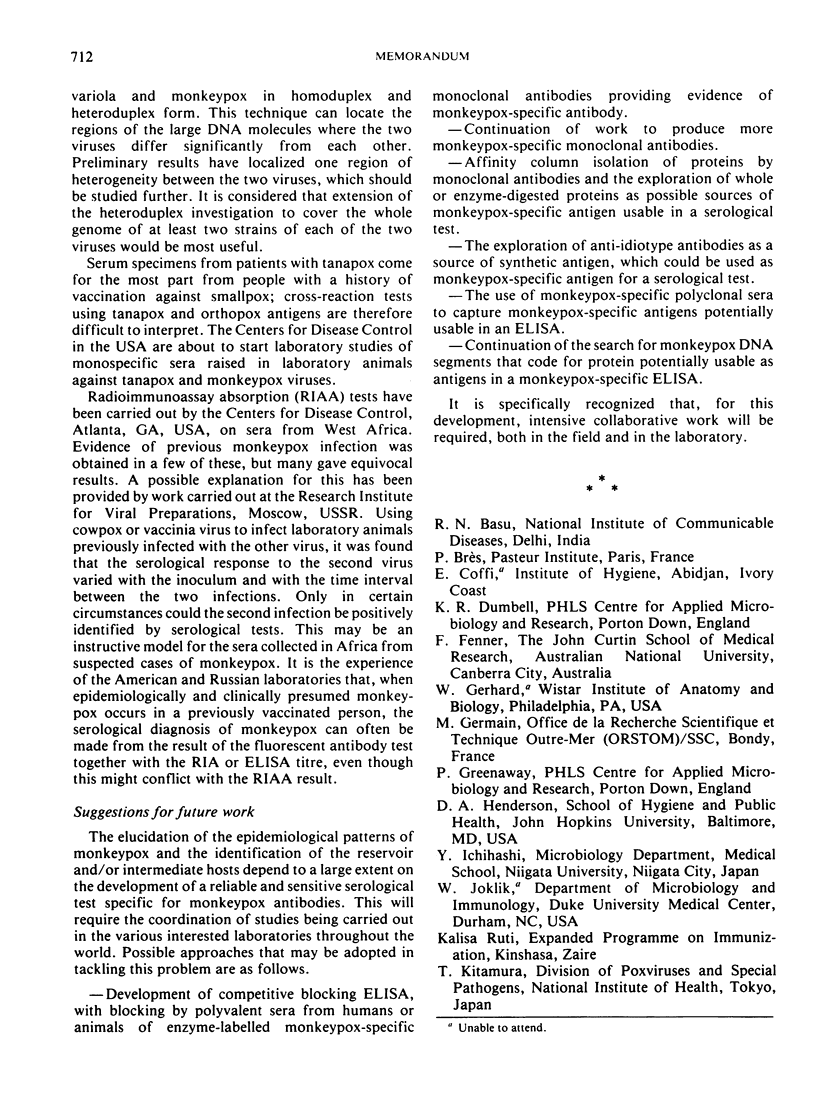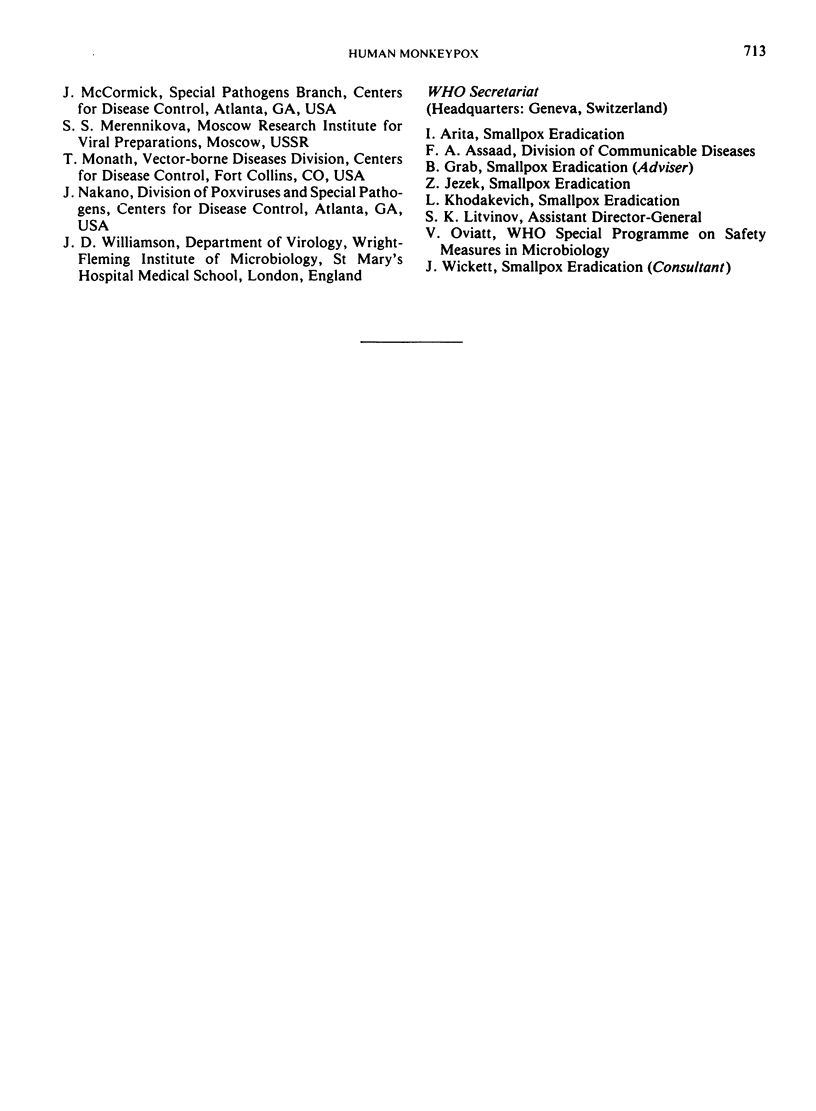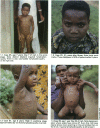Abstract
In spite of a recent increase in the number of reported cases, human monkeypox remains a rare sporadic zoonotic disease with limited capacity to spread between humans. As such, the disease does not at present require specific public health measures. However, much of the population in the enzootic region, especially in the 5-14-year age group, still retains some immunity as a result of vaccination against smallpox. Continuation of surveillance activities on the same scale as at present until 1989 should provide a clear indication of the extent to which human monkeypox may be considered a public health problem, either generally or in particular localities. Such surveillance should also provide a definitive clinical and epidemiological picture of this newly discovered disease. Further research on its ecology and epidemiology will be facilitated by the development of a simple, specific and sensitive serological test for monkeypox virus-specific antibodies.
Full text
PDF